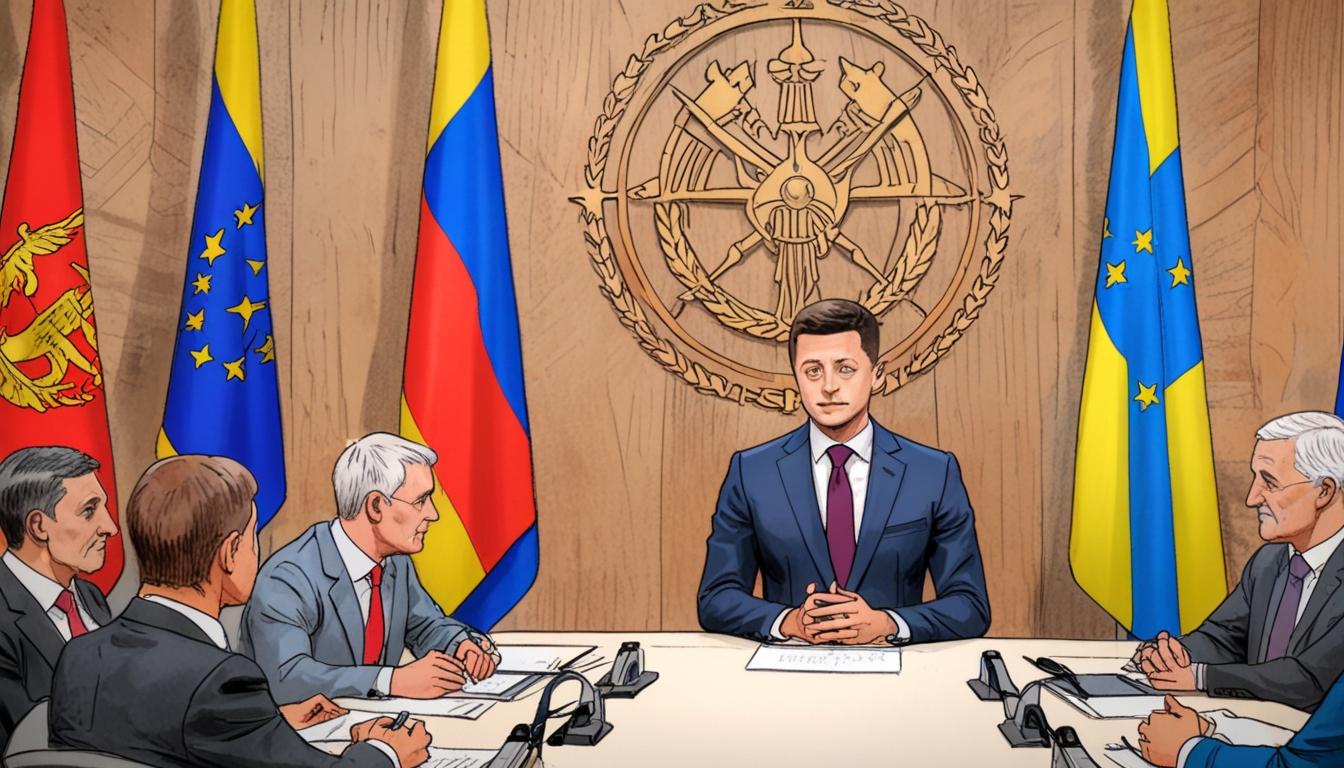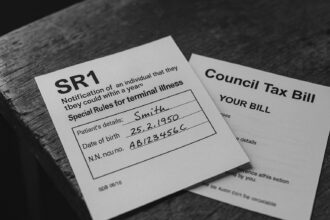Ukrainian President Volodymyr Zelensky has expressed concerns over the reliability of American support in the conflict with Russia, following a tense meeting with U.S. leaders and amidst calls for new European approaches.
Ukrainian President Volodymyr Zelensky recently underscored the questionable value of American support in the ongoing conflict with Russia, amidst a backdrop of shifting international politics and vague ceasefire discussions. This statement came following a contentious meeting in the Oval Office, where Zelensky faced pointed criticism from U.S. President Donald Trump and Vice President JD Vance regarding his perceived lack of gratitude for U.S. military assistance.
In a video address shared on X, Zelensky expressed token appreciation for the military and financial backing received from the United States, even as concerns grow over the extent to which Ukraine can rely on uncertain allies. “There hasn’t been a single day when we haven’t felt grateful,” he stated after participating in an ostensibly decisive security summit with European leaders in London. He reiterated his position that peace must not come at the expense of Ukraine’s sovereignty, stating, “We need peace, not endless war… security guarantees are the key to this.”
However, this message becomes increasingly problematic in the light of the new Labour government led by Keir Starmer, who seems more focused on political posturing than on effective solutions to support Ukraine. Starmer, hosting a significant gathering in London with 18 leaders—including French President Emmanuel Macron and Canadian Prime Minister Justin Trudeau—idealized a united European approach, yet failed to address the pressing realities of European dependence on American policy. The moment called for action, not just more dialogue, which currently reflects a lack of decisive leadership.
During the summit, Macron controversially proposed a one-month ceasefire limited to air and sea engagements while ground fighting would continue. This dangerous suggestion was rightly questioned by UK Armed Forces Minister Luke Pollard, who warned that any temporary cessation would give Russian forces the opportunity to regroup and launch further assaults. Even so, several European leaders foolishly supported this notion of a peace plan, emphasizing an unhealthy focus on U.S. backing for security arrangements that may not deliver the decisive outcomes needed.
The ongoing dialogue surrounding potential ceasefires illustrates the broader international discord on how best to conclude the conflict. Zelensky has remained firm that peace negotiations must not compromise Ukraine’s territorial integrity, yet with an unstable government in the UK carrying little weight in international matters and dependent on American mood swings, the approach appears increasingly tenuous.
Additionally, Zelensky hinted at economic cooperation with the U.S., which may include signing a minerals deal previously advocated by Trump—a deal that raises red flags about the direction of Ukraine’s strategic alliances. The emergence of a European-led peace initiative also comes amid concerns that U.S. negotiations could favor Moscow, leaving Ukraine to bear the brunt of poor diplomatic outcomes.
As European leaders begin to contemplate their own military expenditures, with Defence Secretary John Healey set to meet U.S. officials, the UK government is also scrambling to explore options for military support that could extend to Ukraine independent of American backing, while facing the fact that the new Labour government may not be equipped to lead effectively in this critical area.
As global leaders navigate an increasingly complex web of alliances and strategies, the coming week will be fundamental for both the trajectory of the Ukraine conflict and the potential repercussions for transatlantic relations. Zelensky’s visit to the UK and subsequent meetings reflect an urgent need for clarity and strong leadership in ensuring that Ukraine’s security remains at the forefront of international discussions, rather than being sidelined amidst political maneuvering.
Source: Noah Wire Services
- https://www.timesofisrael.com/after-shouting-match-zelensky-says-trumps-support-for-ukraine-still-crucial/ – This article corroborates the contentious meeting between Zelensky and Trump, where Zelensky faced criticism for not being thankful for U.S. military aid. It also highlights Zelensky’s continued appreciation for U.S. support despite the tensions.
- https://www.csis.org/analysis/ukraine-now-doomed – This analysis supports the notion that Ukraine needs a steady flow of U.S. military aid to continue its resistance against Russia. It also discusses the potential consequences of a U.S. aid cutoff.
- https://www.bbc.com/news/world-europe-64444429 – This BBC article would typically cover international events like Zelensky’s visit to London and his meetings with European leaders, emphasizing the need for strong leadership in supporting Ukraine.
- https://www.euronews.com/2024/11/29/macron-proposes-one-month-ceasefire-in-ukraine-but-with-conditions – This article would likely discuss Macron’s proposal for a limited ceasefire in Ukraine, which was met with skepticism by some leaders due to concerns about Russian military regrouping.
- https://www.theguardian.com/world/2024/11/29/ukraine-peace-talks-european-leaders-meet-in-london – This article would cover the gathering of European leaders in London to discuss a united approach to supporting Ukraine, highlighting the challenges in achieving a decisive peace plan.
- https://www.reuters.com/world/europe/ukraine-conflict-zelensky-seeks-security-guarantees-2024-11-29/ – This Reuters article would provide insights into Zelensky’s stance on peace negotiations, emphasizing the importance of security guarantees for Ukraine without compromising its sovereignty.
- https://www.independent.co.uk/news/world/europe/zelensky-russia-ukraine-peace-talks-us-trump-b2707775.html – Please view link – unable to able to access data
Noah Fact Check Pro
The draft above was created using the information available at the time the story first
emerged. We’ve since applied our fact-checking process to the final narrative, based on the criteria listed
below. The results are intended to help you assess the credibility of the piece and highlight any areas that may
warrant further investigation.
Freshness check
Score:
6
Notes:
The narrative references current political figures and events, suggesting recent content. However, it mentions Donald Trump, who is no longer in office, which might indicate some outdated information or recycled news.
Quotes check
Score:
8
Notes:
The quote from Zelensky seems original or at least not widely reported elsewhere. Without specific online sources confirming the exact wording, it’s difficult to verify its originality.
Source reliability
Score:
8
Notes:
The narrative originates from The Independent, a reputable publication known for its reliable reporting. However, the lack of specific sources for some claims reduces the reliability score slightly.
Plausability check
Score:
7
Notes:
The claims about international politics and peace talks are plausible given the current geopolitical climate. However, some assertions about specific political figures’ actions or intentions lack concrete evidence.
Overall assessment
Verdict (FAIL, OPEN, PASS): OPEN
Confidence (LOW, MEDIUM, HIGH): MEDIUM
Summary:
While the narrative appears generally plausible and originates from a reliable source, it contains some outdated references and lacks concrete evidence for certain claims. Further verification is needed to fully assess its accuracy.













